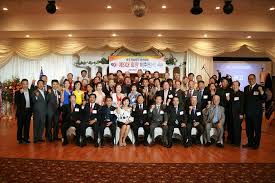CA
ON
대형스크린,LED싸인 & 간판 - 대신전광판
전화: 416-909-7070
4065 Chesswood Drive Toronto, ON

토론토 기쁨이 충만한 교회
전화: 416-663-9191
1100 Petrolia Rd Toronto, ON

럭키조경 & 나무자르기
전화: 647-564-8383
4699 Keele St. Unit 218 Toronto, ON

고려 오창우 한의원
전화: 416-226-2624
77 Finch Ave W #302, North York Toronto, ON

호남향우회 (토론토)
전화: 647-981-0404
7 Bishop Ave. #2411 Toronto, ON

1004열쇠
전화: 416-895-1004
4 Blakeley Rd. Toronto, ON

캐나다 공인 컨설턴트 - 한인크레딧 컨설팅
전화: 416-897-8438
1 High Meadow Place, Unit 2 North York, ON

한인을 위한 KOREAN JOB BANK
전화: 6476245886
4065 Chesswood Drive Toronto, ON
.jpg)
최고의 POS시스템 - 스마트 디지탈 POS
전화: 416-909-7070
4065 CHESSWOOD DR. NORTH YORK Toronto, ON
0.jfif)
싸인건설
전화: 416-909-7070
4065 Chesswood Dr. North York, ON
0.jfif)
부동산캐나다 (Korean Real Estate Post)
전화: 416-449-5552
1995 Leslie Street Toronto, ON
.jfif)
스마트 디지탈 프린팅 - 인쇄 및 디자인
전화: 416-909-7070
4065 chesswood dr. Toronto, ON
.jfif)
It would be a place where all the visitors including me share the life stories and experiences through their activities,especially on life as a immigrant.
Why don't you visit my personal blog:
www.lifemeansgo.blogspot.com
Many thanks.
블로그 ( 오늘 방문자 수: 181 전체: 267,744 )
이북과의 음악외교가, 교착상태의 정부간 외교보다 더 증폭이 좋다.
lakepurity
2008-12-12
Musical Diplomacy Resonates With N. Korea as Official Efforts Stall
By Nora Boustany
Washington Post Foreign Service
Saturday, December 13, 2008; Page A09
North Korea's orchestras are eager to travel to the United States and replicate the New York Philharmonic Orchestra's bravura performance in February in the North Korean capital. The negotiations for such a visit that are underway between North Korean officials and American music leaders indicate that informal cultural diplomacy is advancing beyond government-sponsored efforts to ease tensions between the two nations.
The Philharmonic's president and executive director, Zarin Mehta, who led the orchestra's trip to Pyongyang, said North Korean music leaders have asked if they can bring an orchestra to play for American audiences. The New York-based Korea Society is brokering discussions among North Korea's U.N. mission, the State Department and the Philharmonic with a goal of bringing 160 performers from Pyongyang's State Symphony Orchestra to New York's Lincoln Center next year, according to a spokesman in Mehta's office.
The Korea Society's executive director, Frederick F. Carriere, who is planning how to raise the estimated $750,000 cost of the proposed visit, said the State Department gave its tentative approval in October. The trip, he warned, depends on whether U.S.-North Korean relations do not deteriorate further.
"We are aware that the Korea Society is considering this project and have discussed their plans with them," said a U.S. State Department official who spoke on the condition of anonymity because of the sensitivity of the discussions.
Asked how the failure this week of the six-party talks to reach agreement on how to verify the dismantling of North Korea's nuclear program could affect a North Korean orchestra visit, the official said, "I think everything is under consideration, but we support cultural exchanges."
Carriere said North Koreans were always interested in a bilateral musical exchange. North Korea's U.N. mission called Carriere within a week of the New York Philharmonic's concert in Pyongyang, which continues to be broadcast frequently on state television.
"They were able to connect," said Mehta, the brother of world-famous conductor Zubin Mehta, about the orchestra's enthusiastic reception in Pyongyang. "We could have gone on burying our heads in the sand, but by playing, we showed there is another side to us and to what American culture is all about."
The Bush administration removed North Korea from its list of terrorism sponsors in October. But human rights organizations have criticized the ongoing six-party talks for neglecting what they call the North's abysmal record on rights. Many of those groups hope the incoming Obama administration will sharpen the focus on the issue in the isolated communist country, where the government holds an estimated 200,000 people in prison.
North Korean pianist and dissident Cheol Woong Kim, who said he fled his famine-plagued country in 2001 because he was hungry not for food but for music, told a Washington audience last month that he believes in music's persuasive power.
"It is said Kim Jong Il likes music," he said, referring to the North Korean leader. "Maybe the light of its beauty will reach his heart."
"In dealing with human rights in North Korea, the cultural approach is a very powerful force," the pianist continued. "That is what the New York Philharmonic was able to do. Though it is not visible to the naked eye, somewhere in the recesses of the brain, I am certain something happens."
Before the Philharmonic's visit, foreign music was considered evil in North Korea. Richard Clayderman's piano version of "Autumn Leaves" triggered Cheol Woong Kim's harrowing escape from his homeland. He said he was overheard practicing the work, which he hoped to play as he proposed to his girlfriend, and was reported to the authorities. They demanded he write a 10-page essay on the wrongs of playing scores composed after the 19th century, he said.
On Oct. 17, 2001, Kim walked across dry patches in the Tumen River to China with the help of a security escort whom he bribed with $1,000. The pianist roughed up his delicate hands working in a lumberyard and slept under the stars in forests until he reached South Korea, where he now teaches aspiring performers.
President-elect Barack Obama urged the Bush administration during the election campaign to push for an end to the forced deportation by China of North Korean defectors.
"They should not be forcibly returned into persecution; they should have the protection to which asylum seekers and refugees are entitled under international law," Obama said in May in a letter to the Korean Church Coalition for North Korea Freedom. "These issues should be on the table when we talk to countries in the region, including China."
Obama did not specify whether that issue or human rights in general should be part of the six-party talks, which has been a standing request by rights activists and legislators such as Sen. Sam Brownback (R-Kan.).
In talking with delegates in the five working committees of the negotiations, the State Department has opted to say nothing about human rights in North Korea. Assistant Secretary of State Christopher R. Hill, mastermind of the administration's rapprochement with North Korea, took umbrage last month when reproached about the delinking of the six-party process from human rights.
"Are you trying to get something accomplished, or are you just trying to feel good?" Hill said. "Can you find a way forward and engage them in this and not use human rights as a weapon? Each country, including our own, needs to improve its human rights record."
He added: "Human rights is a serious means to a serious end. It should not be used to humiliate people or beat them on the head with, but to restore some dignity to the people in these countries. But most of those pushing for human rights have no patience."
Brownback, who has questioned Hill sharply during congressional hearings, said State Department officials who fear that raising human rights issues might be detrimental to nuclear talks are missing an opportunity.
"At least we would have saved lives," Brownback said. "When we are talking about concentration camps, widespread famine, thousands of exploited refugees who are trafficked or repatriated, and decades-old abduction issues -- human rights affects all the parties."
"This is not just about fulfilling our moral obligations to the North Korean people," Brownback added. "As we learned with the Soviets, linking human rights and security in a single framework yields better long-term results for our national security."
Kjell Magne Bondevik, a former prime minister of Norway and now president of the Oslo Center for Peace and Human Rights, agrees.
"It is possible to do both if you are engaged in a dialogue and not let one overshadow the other," he said during a recent visit to Washington. "What is affecting people daily in North Korea is not the nuclear issue, but human rights.